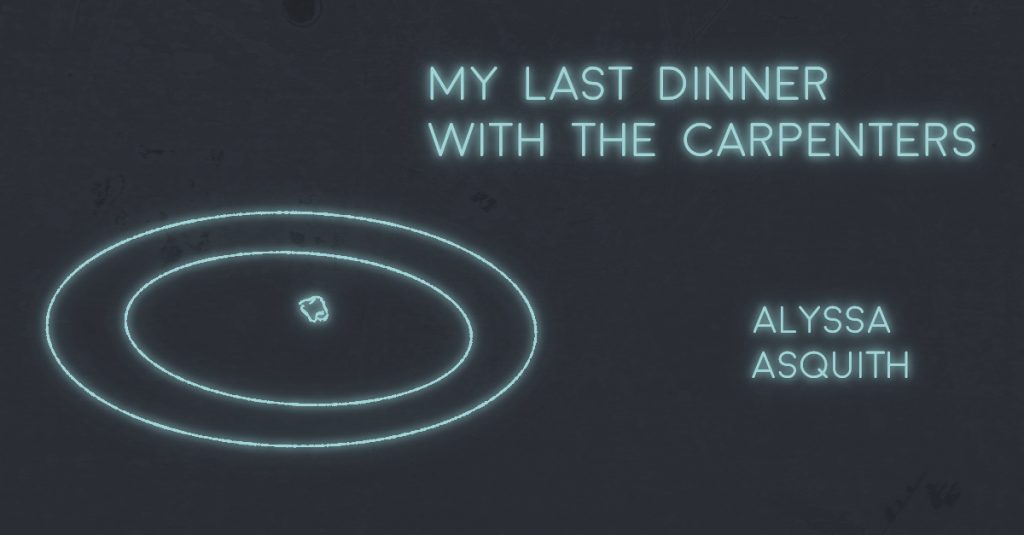
MY LAST DINNER WITH THE CARPENTERS by Alyssa Asquith
The dinner invitation had not come at a convenient time. In any event, I wasn’t dressed; I couldn’t remember when I’d last been dressed. Most of my clothing had been eaten by moths or rats years ago, and the stuff that remained—leather, mostly—was brittle and dry, like old toast. Besides, my teeth had begun to fall out. I’d lost one the day before, and two more by the morning. I think I must have swallowed them. But I couldn’t refuse the Carpenters. The fact of the matter was that Mr. Carpenter had been looking forward to the evening all week,…
